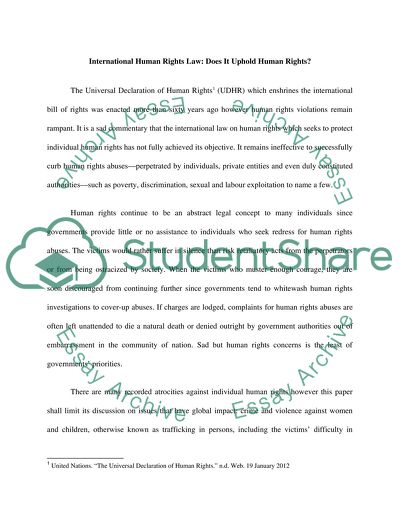Cite this document
(“International Human Rights Law: Does It Uphold Human Rights Essay”, n.d.)
Retrieved from https://studentshare.org/law/1394745-international-human-rights-law-does-it-uphold-human-rights
Retrieved from https://studentshare.org/law/1394745-international-human-rights-law-does-it-uphold-human-rights
(International Human Rights Law: Does It Uphold Human Rights Essay)
https://studentshare.org/law/1394745-international-human-rights-law-does-it-uphold-human-rights.
https://studentshare.org/law/1394745-international-human-rights-law-does-it-uphold-human-rights.
“International Human Rights Law: Does It Uphold Human Rights Essay”, n.d. https://studentshare.org/law/1394745-international-human-rights-law-does-it-uphold-human-rights.


